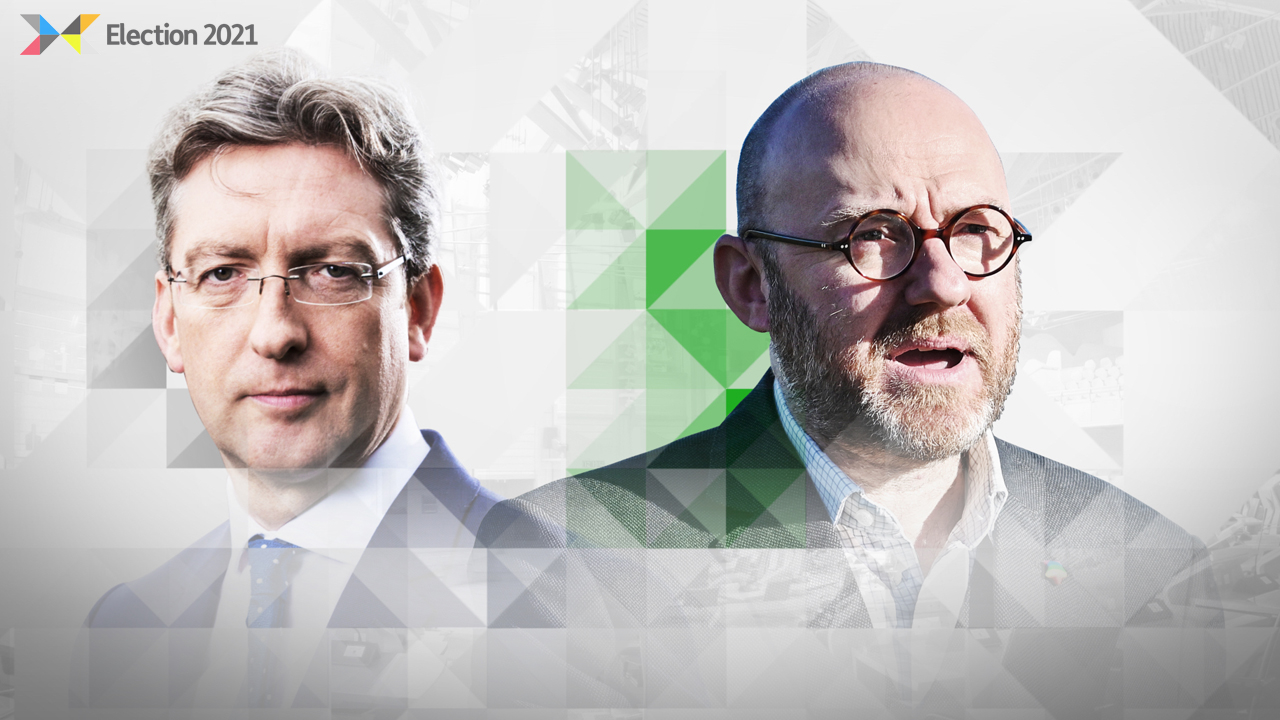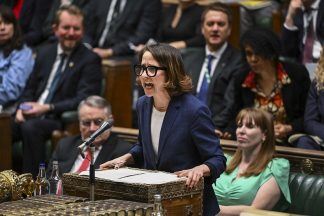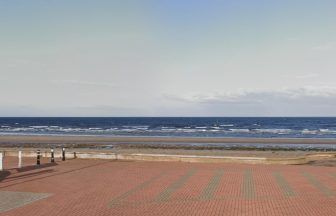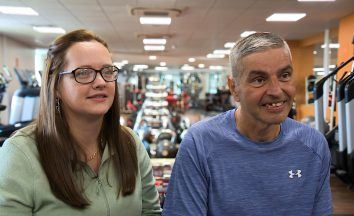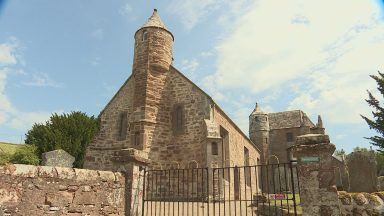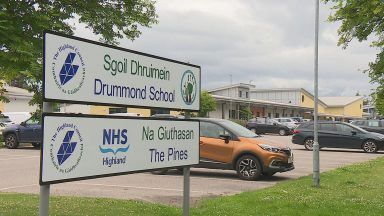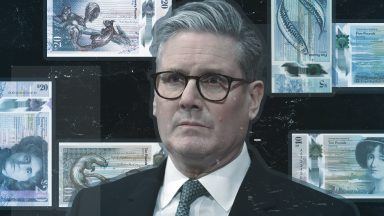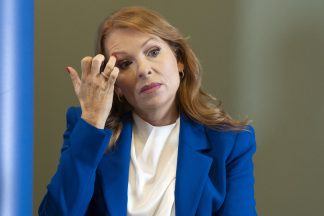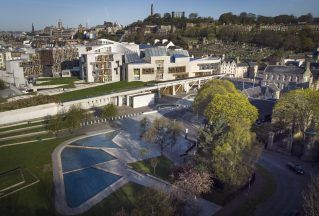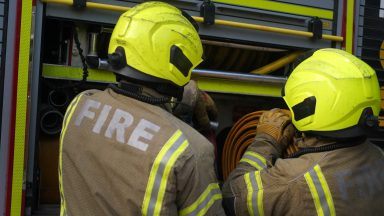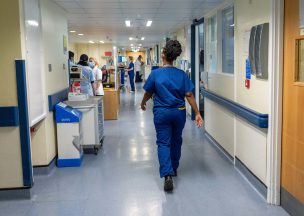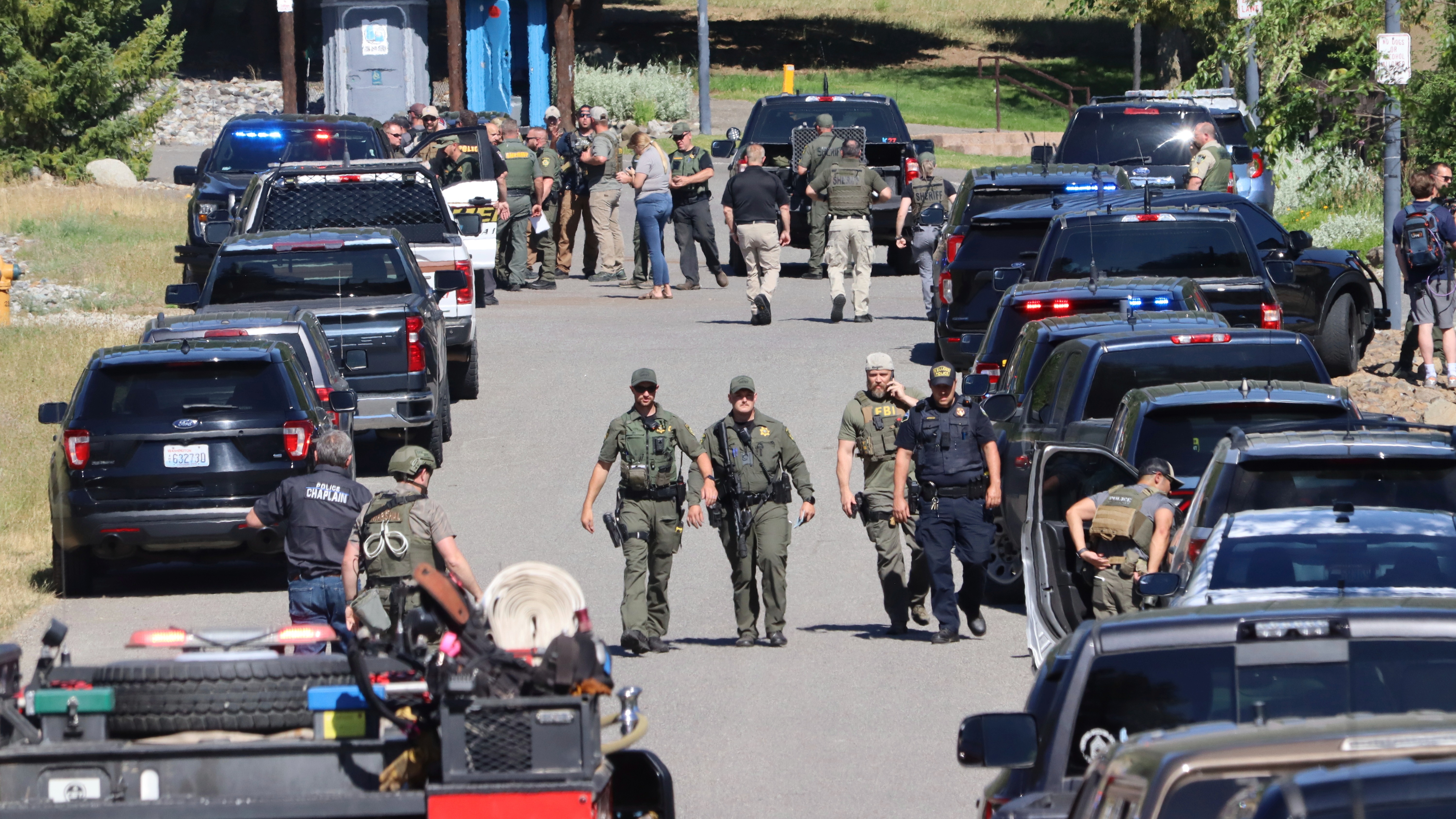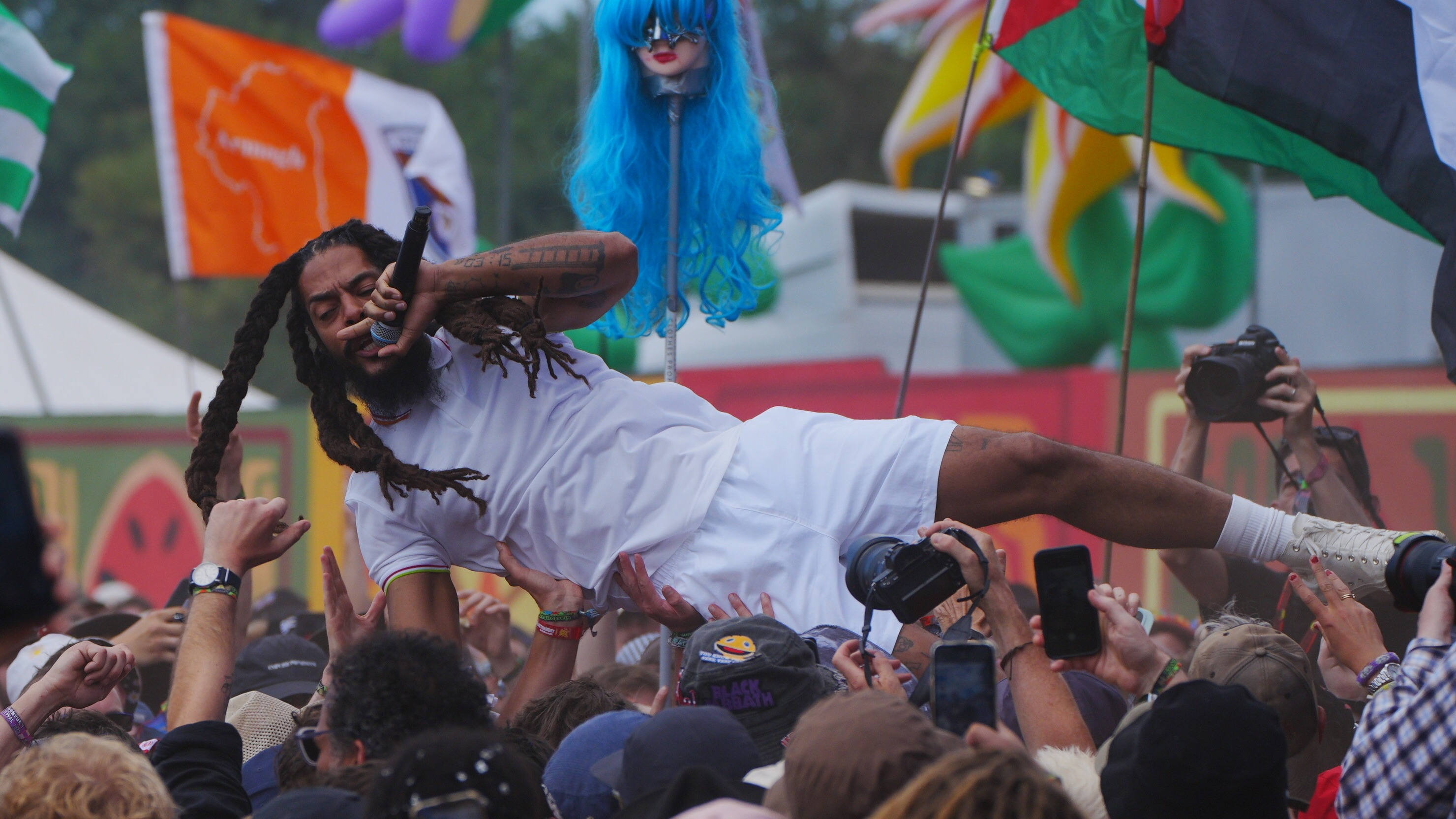Over the coming weeks STV will be hosting a series of exclusive interviews with the main political party leaders taking part in May’s Holyrood elections.
Next up is co-leader of the Scottish Greens, Patrick Harvie, who sat down with political correspondent Colin Mackay to outline the party’s message and vision for the country.
Colin Mackay: Patrick Harvie COP26 is coming up, what’s your big sell on the climate at this election?
Patrick Harvie: Well, very clearly, this is an election where our future really depends on the decisions that are going to be made, not just across the river from this studio at the climate conference, but in the Scottish Parliament as well. Scotland has set its climate targets and repeatedly missed them. The current Scottish government really does need to take responsibility for the fact that in areas like transport emissions are going up, they’re going in the wrong direction. It’s not just the progress is too slow; we are going in the wrong direction.
So, we need to take that bold transformative approach. We need to say a just transition begins right now, instead of thinking oil and gas extraction lasts for another generation. We need to be investing in public transport that will meet the needs of every community across Scotland, and do that affordably. By doing these things, we will have the economic recovery from the pandemic as well, that will generate the jobs of the future.
So if we believe in that kind of optimistic future of Scotland. We need to vote, like our future depends on it.
CM: Depending on what voters decide on May 6, and it’s entirely up to them, would you consider going into a coalition, after the election?
PH: Well I’ve seen various folks in the media speculate about this. We don’t speculate about this. We focus on winning people’s trust, inspiring people with a positive vision about Scotland’s Future.
CM: I heard you say this week that you aspire to being a party of government at some point. Why not now?
PH: The Greens, including in many other countries in Europe have been in government, and I absolutely hold that aspiration for my party. Very clearly, we’ve got six seats in the last election; some of the polls suggest that we could double that, at this election.
CM: So if you do that, would you consider going into government?
PH: Well, you know, we would look at the arithmetic in the next parliament, and if the leading party that has to form the next government wants to speak to us, I suspect most of our party would be willing to talk. There are really big differences though, between ourselves and the SNP on a number of issues like oil and gas, like public transport…
CM: But you’ve been accused of being the little helpers in the last parliament. Five budgets and two conference votes you backed them on…
PH: You’ve been reading too many Tory leaflets. There’s a narrative that some on the right of politics like to create. In reality, the Tories have voted with the SNP on a number of issues…
CM: But in the key votes you voted with them in terms of the budget. And in terms of the confidence votes…
PH: It was Green pressure that got the government to stop working with the Tories to bail out the landlords and start bailing out tenants in the private rented sector…
CM: Because you bailed out the SNP…
PH: Because we put pressure on the SNP. We always do that by putting positive, constructive ideas on the table. I wish other opposition parties would do the same.
CM: Could you do that in government then, and if you did, what are your red lines for negotiations?
PH: I think clearly there are clearly substantial differences that we would have to talk to any other party about. We’ve shown in the last five years…
CM: So what are your red lines? What’s non-negotiable for the Greens?
PH: We’ve shown for the last five years, that bringing constructive opposition can get results. I’m really proud of that track record, and I would have no worries about continuing to make an impact to make a difference for the people of Scotland, in that way, in the next session, whatever the parliamentary arithmetic was.
CM: So you don’t think you’ll be in government then?
PH: If the party that’s in government is the biggest and wants to talk to us. I suspect that most of us will be very comfortable about having that conversation. But it would be a tough conversation in terms of things like wealth taxes, in terms of things like investing in public transport, instead of multi billion pound road building programme. That would make our climate crisis, worse, not better…
CM: One of your big issues is rail transport; you’re talking about £22bn of investment, where’s that money coming from? Is that scrapping all the roads investment?
PH: It’s a 20 year programme that would involve redirecting from road building, which makes not just climate emissions, but also congestion and pollution worse, not better. So it would involve redirecting. But there’s also recognition…
CM: Redirecting all of it?
PH: There’s also recognition across all parties that the Covid recovery, the recovery from this pandemic needs to be investment led. It can’t be left to the market. It leads the role of the state, including with borrowing powers to invest in the priorities of the future, and if we’re willing to do that, we will not only reduce our emissions, not only have economic recovery, but will create the sustainable prosperity that will last for the 21st century.
CM: Isn’t duelling the A77 in the southwest of Scotland to the ports, isn’t completing the duelling of the A9 crucial services for the people of Scotland?
PH: There are certainly areas of our road network that needs maintenance, and that needs safety improvements. But building evermore capacity in the road network is a self-defeating policy. It generates more traffic, which generates more pollution, more ill health, and doesn’t help the economy in the long run. It leaves people spending more of their money to spend more of their time stuck in traffic jams.
CM: You want to build a rail tunnel under the Forth. I haven’t heard anybody saying that that was something which was necessary at all, only the Greens…
PH: Well that’s one element of a 20 year programme…
CM: It’s a big element, £6bn?
PH: If we were in the position of being able to deliver that whole programme each element of it would be subject to scrutiny. But the scrutiny of transport policies in Scotland at the moment simply doesn’t add up.
CM: It sounds like a vanity project. I’m not hearing anybody from the rail network demanding it, everybody likes the bridge across the Forth. Why do you need a tunnel?
PH: Well, the Rail For All report that you’re talking about was done by industry experts so that’s not just our ideas. It’s the views of people who have been rail experts for many, many years.
But look, if Scotland aspires to what many of our European neighbours have, a world class public transport system that’s affordable, that’s run in the public sector and in the public interest and that serves every part of our Scotland we need to be bold about it.
CM: And what about the North Sea oil and gas industry you want to close it down. When?
PH: Very clearly what we should be starting with is no new exploration licences…
CM: But you actually want to close them down don’t you?
PH: Revoke the undeveloped licences and with the existing operational fields, set a timescale for winding them down.
CM: So what is your timescale?
PH: Well it’s, it would be up to assessing each individual operational field right at the moment, and we’re saying no new exploration licences and revoke the undeveloped ones.
CM: But what’s your target for closing them down?
PH: The critical target is our climate change envelope, the window of opportunity we have. We have three times more fossil fuels in existing reserves than we can afford to use. So the transition away from fossil fuels needs to be on that timescale. It needs to be making sure that we’re no longer using fossil fuels by the time we reach that maximum envelope.
CM: Is nine years your target for closing down the North Sea?
PH: I think that would, it would be realistic to develop the alternative industries that the communities that are currently dependent on a dying industry, fossil fuels, they’re going to need those alternative industries. We can invest in that. Let’s not leave it to chance. Let’s not leave it to the market. That failed Scotland in previous waves of deindustrialization. When you see economic change coming yeah the plan for it, you have to invest in what’s going to be needed into the future.
CM: Something else you have to plan for if you’re in the Green Party is another independence referendum. What would be a mandate for that in the next parliament?
PH: Simply a majority of the votes in the next Scottish Parliament. If the people of Scotland choose to elect a pro-independence majority in the next Scottish Parliament, then that’s a mandate for that Parliament to decide…
CM: But a mandate was given in the last parliament and it hasn’t delivered has it?
PH: Well we believe that the continued opposition, after yet another pro independence election if that’s the result that people in Scotland choose, the continued opposition to that democratic principle is politically unsustainable, and potentially open to legal challenge as well so we’ll assert that case, that Scotland has the right to make its own choice.
CM: Did you ever get the million signatures you promised for another independence referendum?
PH: I think you are going back to way before the Brexit referendum…
CM: 2014 is not that far ago, we can all remember. Did you get the million signatures?
PH: That was our position before the Brexit referendum. We certainly changed our position on that because Brexit has changed everything. Brexit is a betrayal of the democratic wishes of Scotland. Scotland’s not only Scotland, but also the people in Northern Ireland and the people across the island of Ireland have been betrayed. Scotland has been betrayed by Brexit. It’s deeply harmful position that we now find ourselves in, and it is at odds, it’s directly at odds with the promises that were given in 2014 with a Better Together campaign that said the way to protect our position in Europe is to vote no. Well that wasn’t true, it changes the game, and it certainly changes our position on what would justify and require another independence referendum.
CM: You talked earlier about wealth taxes and other taxes, how much tax does Scotland need to increase to cover the costs of what you’re promising in terms of what your manifesto will offer?
PH: The really big challenge on tax is not to try and put the figure on it right now, and I don’t think any party that does that now would be honest. The Finance Committee, at the Scottish Parliament just toward the end of the last session, said that we need a deep re-examination of our tax base, not just how much tax to raise but how to raise it…
CH: You’re not going to tell the voters how much you’re going to put up their tax in the next parliament?
PH: We’ve said that now isn’t a reasonable time to be raising income tax, except perhaps an additional wealth tax for the very highest, you know a millionaire’s tax. There’s a case for that. There’s a case for a pandemic profiteers tax for some of the big companies, global companies that have profited massively from the pandemic, a windfall tax on them would be reasonable. Not income tax at the current time, but we also clearly need to reform our local taxation system which is broken, out of date and deeply unfair.
CM: Patrick Harvie thanks for joining us on Scotland Tonight.
PH: Thank you.
Join the Scotland Tonight team again next week for the third part in the series of leader interviews ahead of May’s elections.
Follow STV News on WhatsApp
Scan the QR code on your mobile device for all the latest news from around the country


